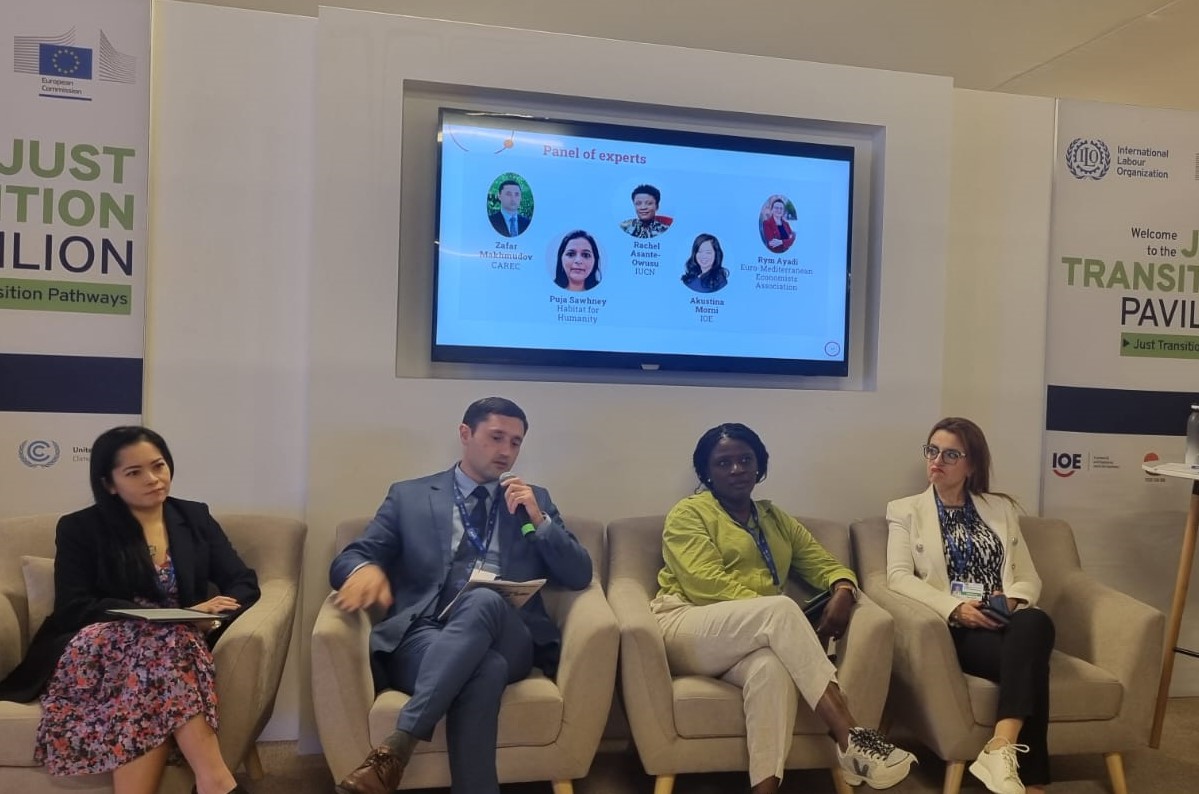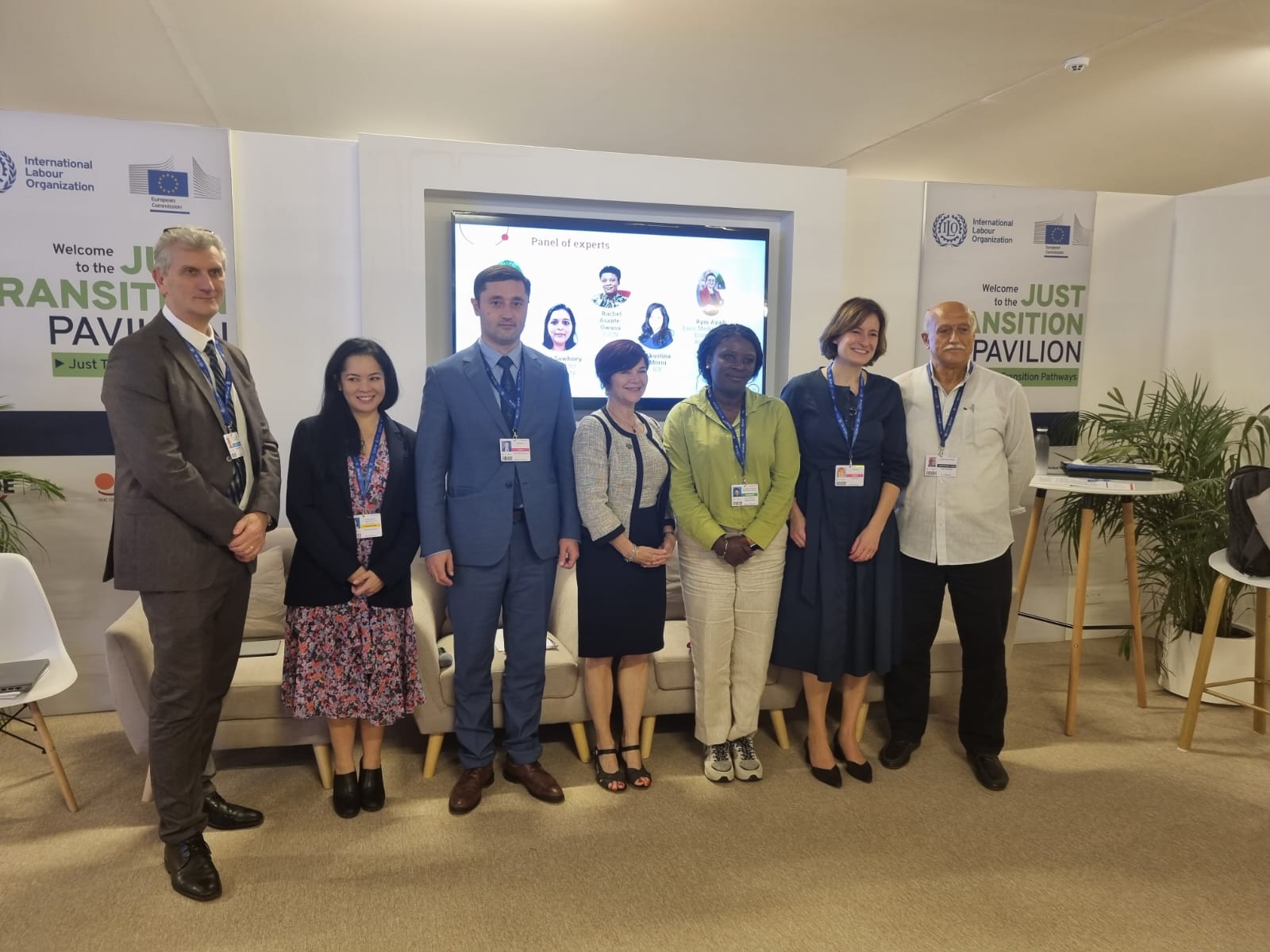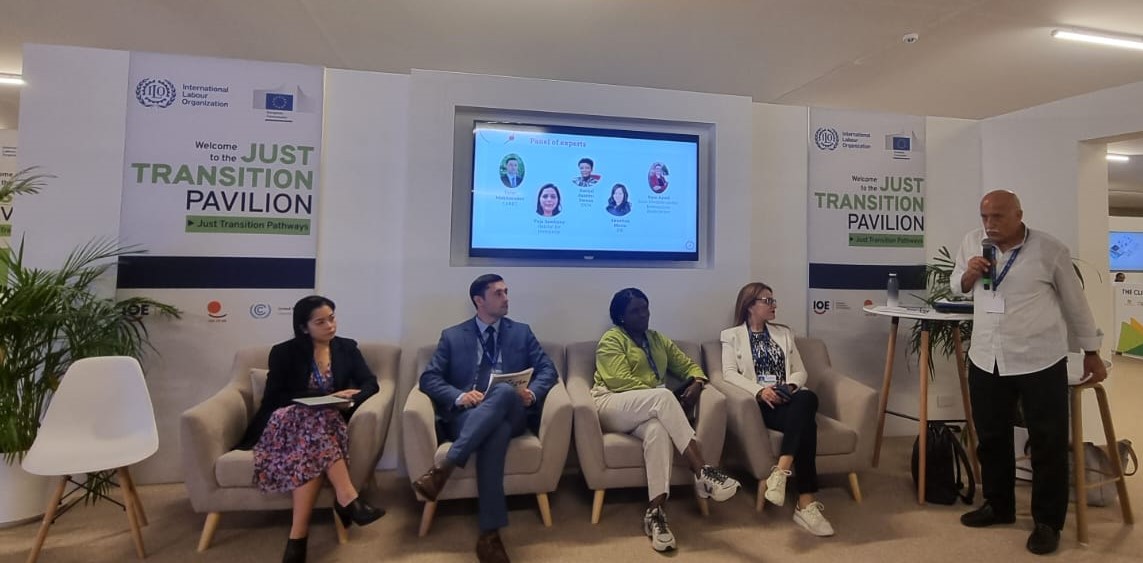“Small and Medium Enterprises (SMEs) are indeed a driving force to covert a just transition concept into circular and low-carbon economies in Central Asian countries. According to a CAREC gap analysis report, SMEs make up approximately 65% of businesses in Central Asia, translating to over 500,000 SMEs in the region,” Zafar Makhmudov, the Executive Director of the Regional Environmental Centre for Central Asia (CAREC), stated at COP28 side event “SMEs, Gamechangers in a Just Transition to circular and low carbon” hosted by the Just Transition Pavilion by ILO and EC on December 8, 2023.

“Moreover, SMEs are more adaptable, making them well-suited to embrace circular and low-carbon practices. A survey conducted in the region revealed that 70% of SMEs or around 350 000 SMEs are actively considering or implementing eco-friendly measures”, said Zafar Makhmudov.
According to the CAREC Executive Director, a 1% increase in the adoption of circular practices by SMEs in Central Asia could lead to a substantial reduction in carbon emissions, estimated to be around 500,000 metric tons annually. This not only aligns with global climate goals but also contributes significantly to the region's commitment to environmental sustainability.
“In terms of resource efficiency, a recent study found that SMEs adopting circular economy principles in Central Asia have witnessed, on average, a 20% reduction in raw material consumption and a subsequent decrease in production costs by 15%. This dual benefit not only enhances the economic viability of SMEs but also aligns with the principles of sustainable resource management,” stated the CAREC Executive Director.
Zafar Makhmudov said that with an increasing emphasis on circularity, the recycling sector in Central Asia has experienced a growth rate of 12% annually, with SMEs playing a pivotal role in establishing and expanding these recycling facilities.
“A market analysis revealed that SMEs involved in circular practices observing an 18% increase in market share could mean that approximately 90,000 SMEs in Central Asia have experienced growth in demand for their sustainable products and services,” reported the CAREC Executive Director.
Zafar Makhmudov believes that SMEs act as community catalysts, promoting environmental awareness and sustainable practices.
Community-based surveys demonstrate that SMEs engaging in circular and low-carbon initiatives have positively influenced consumer behavior, with 65% of respondents expressing a preference for products and services from environmentally conscious businesses. Through capacity-building programs, it has been observed that 80% active involvement of SMEs in community-building initiatives suggests that around 400,000 SMEs are actively contributing to local sustainability efforts.
“Last but not least this is to note that SMEs are serving as the cornerstone for achieving environmental sustainability goals, aligning with global efforts to address climate change and promote a more resilient and equitable future for the region,” concluded Zafar Makhmudov.
A Just Transition requires an integrated social, environmental and economic systemic approach if impactful transformative actions are expected, when dealing with the triple planetary crisis. Being generally rooted in local ecosystems, looking for existential solutions to the challenges they encounter, the eco-inclusive enterprises are “natural” stakeholders for such Just Transition process. There has been an increasing recognition of the vital role of the business sector in coping with the economic and environmental challenges, with an increasing attention to the SMEs and their role in finding suitable and alternative solutions to various related problems.


